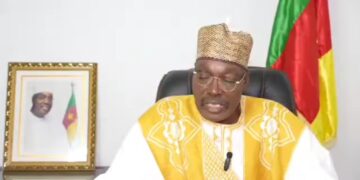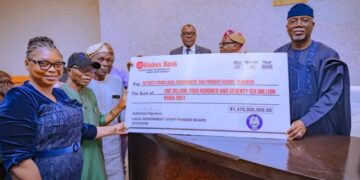![]()
At its Artificial Intelligence and Cybersecurity Conference held on January 21 in Lagos, AstroSec, a cybersecurity organisation founded by Austin Orumwense and Adejoke Ogundare, warned that Nigeria’s digital expansion is facing increased exposure to artificial intelligence–driven cyber threats.
The conference, which brought together industry leaders, academics, and community representatives, emphasised the need for stronger national frameworks and wider collaboration to safeguard businesses, institutions, and Nigeria’s democratic processes.
In his keynote address, Orumwense noted that Nigeria’s fast-growing digital economy remains vulnerable to persistent cyber risks.
“Cyber risk is not abstract; it touches payments, elections and day-to-day operations. AI can materially improve detection and response, but it also accelerates challenges such as deepfakes and automated fraud,” he said, while urging the development of stronger national frameworks to counter both state and criminal actors.
Delivering a second keynote, Adejoke Ogundare stressed the importance of investing in people as well as technology.
“Technology alone will not close the skills gap. Our focus is on creating pathways for students and early-career analysts to gain real project experience so organisations can hire people who are ready on day one,” she said.
Ogundare added that building human capacity across universities and communities remains essential if Nigeria is to sustain resilience in the long term.
Since its establishment, AstroSec has combined professional capacity-building with practical support for smaller organisations often left out of security planning.
The organisation has mentored over forty aspiring cybersecurity professionals, worked with university cybersecurity departments across Nigeria, and assisted small businesses in implementing affordable protection measures, including phishing defences, secure backup systems, and incident response procedures.
Conference sessions also examined the challenges faced by small and medium-sized enterprises, with live demonstrations showing how artificial intelligence can be applied to fraud monitoring, email filtering, and endpoint protection at affordable costs.
Participants further discussed the growing dangers of disinformation, such as manipulated videos, audio, and images, and how these can undermine election integrity and brand credibility.
AstroSec drew attention to reports by the Nigerian Communications Commission revealing that over seven million attempted cyberattacks were recorded during the 2023 general elections.
The organisation called for the establishment of an Electoral Cybersecurity Operations Centre within the Independent National Electoral Commission (INEC) to strengthen digital defences during future polls.
Organisers disclosed that AstroSec’s training programmes have introduced students to advanced threat detection workflows and incident documentation. Its direct engagement with small businesses, they said, has helped owners reinforce their cybersecurity without incurring prohibitive costs.
The event concluded with a pledge to release a public brief summarising the conference sessions and offering practical cybersecurity checklists for SMEs, newsrooms, and civic groups.
AstroSec also reaffirmed its commitment to continue working with universities and employers to expand mentorship and early-career opportunities in cybersecurity.

























